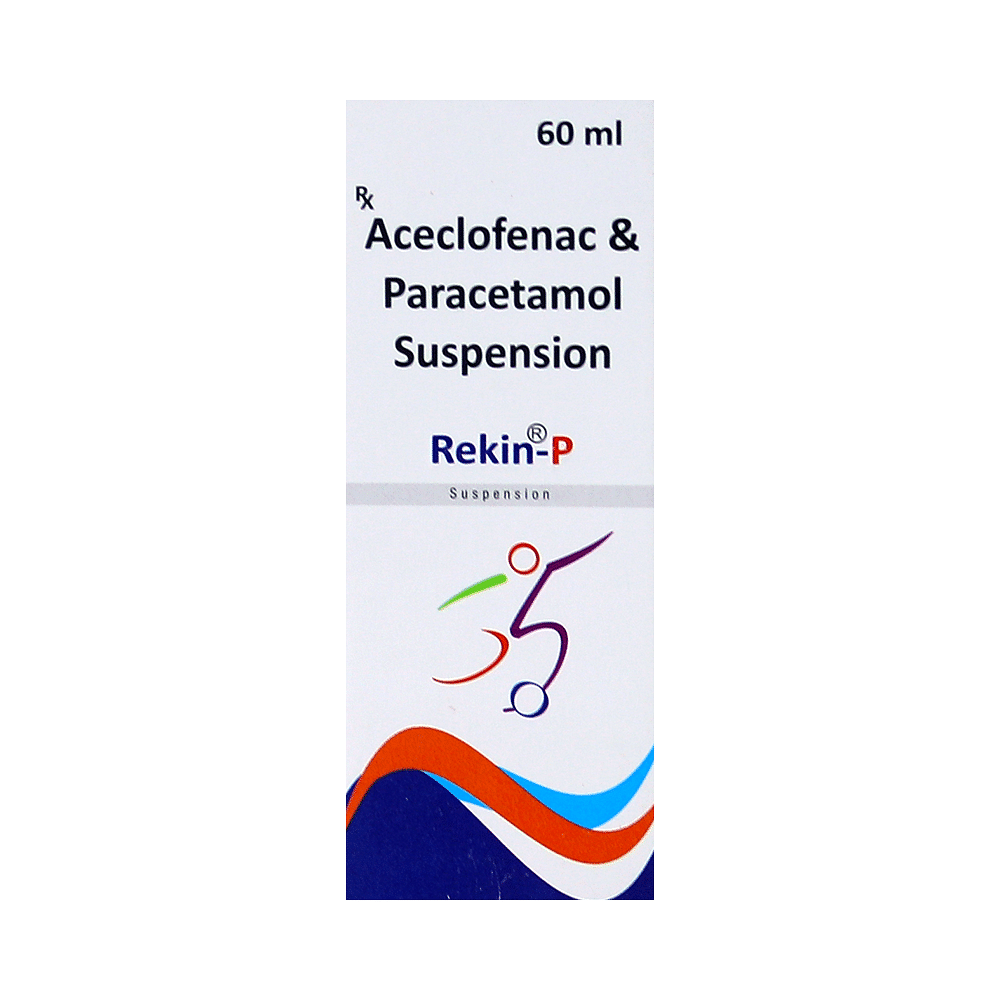
Alvinac P Oral Suspension
Manufacturer
Alvid Biocare
Salt Composition
Aceclofenac (50mg/5ml) + Paracetamol (125mg/5ml)
Key Information
Short Description
Alvinac P Oral Suspension helps lower body temperature (fever) and reduce pain and inflammation (redness and swelling) both in infants and children.
Dosage Form
Oral Suspension
Introduction
Alvinac P Oral Suspension is a medication that helps to lower body temperature (fever) and reduce pain and inflammation (redness and swelling) in infants and children. It is available in an oral suspension form and is used to treat various conditions such as fever, pain, and inflammation.
Directions for Use
Give this medicine after food to avoid abdominal discomfort in your child. Maintain a log of your child's temperature. If you do not see any improvement, contact your child's doctor for advice.
How it works
Alvinac P Oral Suspension comprises two active ingredients: Aceclofenac and Paracetamol. These medicines work by blocking the action of chemical messengers responsible for pain, fever, and inflammation.
Quick Tips
Give plenty of fluids to your child to ensure proper body hydration (water-levels) Give your child a balanced diet Encourage your child to have optimum sleep since sick children get tired soon and getting plenty of rest helps them recover faster Stop the medicine and consult your child's doctor in case your child exhibits allergic rash or stomach pain soon after taking this medicine
Related Medicines

Dolbrex-Kid Oral Suspension

Aece-P Oral Suspension

Rekin-P Oral Suspension

Veto A Oral Suspension

Acticlo P Oral Suspension

Aeroace-P Oral Suspension

Kenfenac P Oral Suspension

Abnik P Oral Suspension

Theace P Oral Suspension

Acevir-P Oral Suspension
Frequently asked questions
Should I adjust the dose of Alvinac P Oral Suspension for my child based on the severity of their illness?
No, it's not recommended to alter the dose without consulting a doctor. Increasing the dose may lead to toxicity, while decreasing it could cause symptoms to recur.
What is the correct dosage of Alvinac P Oral Suspension for my child?
Your child's doctor will prescribe the appropriate dose based on their condition and body weight. Stick to the prescribed dosing schedule for safe and complete recovery.
How should I store Alvinac P Oral Suspension?
Store it at room temperature, in a dry place, away from direct heat and light. Keep all medicines out of children's reach and sight to avoid accidental intake.
Can the same dose of Alvinac P Oral Suspension be given to all children?
No, the doctor decides the appropriate dose based on the child's age and body weight, which may change as they grow older. Never give a dose without consulting a doctor.
When can I expect my child to feel better after taking Alvinac P Oral Suspension?
It depends on the severity of the infection. Continue giving the medicine in the prescribed dose and frequency, and you'll notice symptoms reduce, with your child feeling better.
Are there any serious side effects associated with Alvinac P Oral Suspension?
Although well-tolerated, if your child experiences intolerable episodes like persistent vomiting, body swelling, decreased urine frequency, or a serious allergic reaction, consult a doctor immediately.
Are there any specific contraindications for using Alvinac P Oral Suspension?
It's considered harmful for patients with known allergies to the components or excipients, other painkillers (NSAIDs), stomach ulcers, heart failure, high blood pressure, liver disease, or kidney disease.


